August has been a fairly eventful month for me, whether it be from news, media consumption, or just reaching personal milestones in general. I’ve been able to start on a lot of the things that I’ve wanted to do, as well as been able to meet certain goals that I’ve been working on for some time. While it’s only looking to be the beginning of many of these things, I no longer feel as much of a need to rush to my goals, but rather I’m trying to be more present in the moment. I tend to get lost in my head and feel anxious about a lot of things that I still have yet to come to terms with, but focusing on being physically present and also what’s in front of me in the current moment has been immensely helpful. Sometimes, it’s nice to just appreciate the surrounding beauty or just simply focus on my breathing.
This blog is one of those things that I see as a step forward for myself, as something that I do to just simply be myself. I originally more had the mindset of treating my online identity as a way to “hide” my true self from the “outside” world, and it be a place where I can show much more of what’s deep inside. But since I’ve come to more understand and believe in myself, I think I’m more okay with being more open about this part of myself instead of treating this corner of the internet that I’ve carved for myself as some sort of the only “sacred” place where I can be myself. That doesn’t mean I’ll be shoving all of myself into the faces of strangers or expressing thoughts that I would be uncomfortable sharing, but… it’s more like this. As sung in Iris by Goo Goo Dolls, “I don’t want the world to see me, cause I don’t think that they’d understand” is something I deeply connect with. But, lately I’ve also been able to think, “many won’t understand me, but that’s okay. Maybe sharing a part of myself would give them even just a bit to understand, and if that’s something that they won’t accept then… that’s okay. I’ll still believe in myself”. So yeah… I’m thankful for anybody that does decide to glimpse into the part of myself that I’ve decided to share on the internet, and regardless, I’ll continue to do the things I want to do and just simply be myself.
Now, getting into what this post is actually about, August has been kind with its media offerings, leaving me with a wide array of things to write about.
First is something that isn’t actually released yet, but was announced a bit prior to me writing this, a remake of the first Trails in the Sky game. I tweeted about it as soon as I saw the trailer, but the original Trails in the Sky trilogy means so much to me. It’s basically my favorite thing ever, across all entertainment media. It’s the purest and greatest encapsulation of the spirit and heart behind why I write, what I love in media, and just simply what I believe in. Trails truly believes in people and the interpersonal bonds that we form. It’s tempered by the understanding of how the world can hurt us, but always affirms that being broken never means that we’re undeserving of love. Trails understands, empathizes with, and is people.
If it isn’t already obvious, I’m ecstatic that my most beloved piece of media is getting a modern remake, and that the trailer for it looks absolutely beautiful. Listening to the music and seeing the characters’ beautiful 3D models filled me with so much emotion that I can’t begin to describe. In this current world where it can often be so difficult to get by or just be oneself, I’m brimming with gratitude that Trails exists to be that understanding shoulder for so many people. It’s been almost 8 years since I originally finished the game, but it’s never once failed to give me hope for a brighter tomorrow, to believe in the bonds that we form and in ourselves.
I’ll for sure be getting this game as soon as it’s released but that’s also slated for 2025, so… I’ll somehow find the willpower to wait that long.
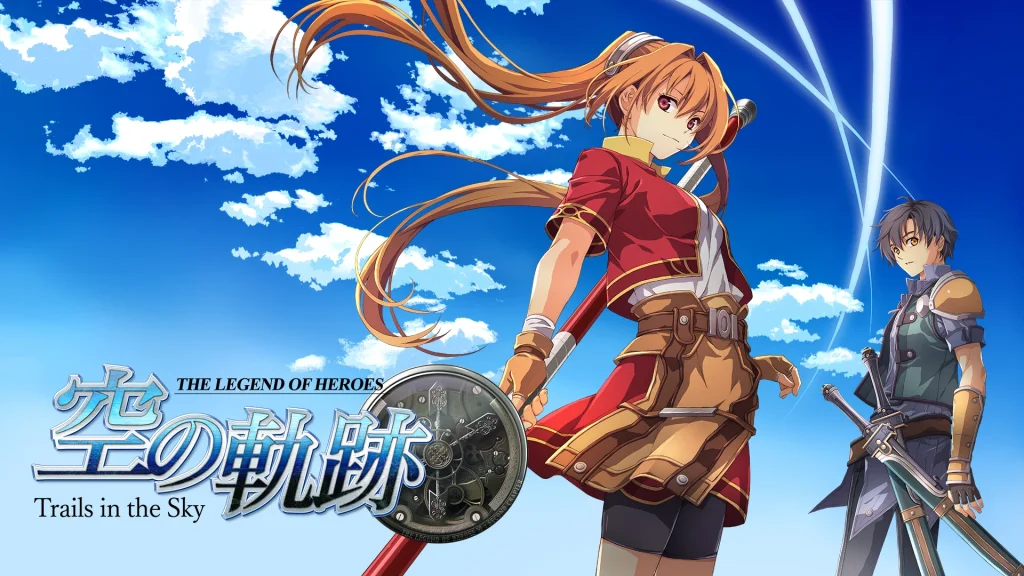
Next might be another unorthodox thing to write about, Hololive English’s 2nd Concert, Breaking Dimensions. While I did manage to get tickets for this concert when sales went live (for myself and my friends whom I’ve been able to get to know better through Hololive), I didn’t end up going to watch this live in New York, for various reasons. But, I did get to watch the VOD of the Saturday show afterwards with some friends, which prompted some reflection on my feelings towards VTubers in general. In case you didn’t already know, my first visual novel (and story) that I created was pretty much all about my thoughts and feelings towards VTubers. While there isn’t much more I can talk more about VTubers as a whole that I didn’t already convey through that story, I think there’s still the opportunity to write a bit about how it all pertains to me, specifically.
I won’t get too much into the details, but my first exposure to VTubers was through Hololive, like many others, and the majority of my VTuber media consumption has historically been Hololive (both JP and EN content). While my own feelings as a viewer of the JP members are that of earnest support with healthy boundaries (proud 35P), it gets to be a bit more complicated when it comes to English speaking VTubers in general. I think for me, because of the language barrier, and my own tendency to correlate anime girls speaking Japanese to the media I consume (which I have an earnest support for), there’s always a bit of a “disconnect” or barrier that prevents an attachment from being framed too personally. That isn’t exactly the case for when I can contextualize the English speakers as someone that has the capacity to understand me and for me to understand them.
As I conveyed through VTuber Connect, there’s a very natural tendency for some to grow an attachment for internet personalities, with feelings often consisting of possessiveness or attention-seeking, in many of the ways that are characteristic of in-person relationships. This becomes more of a problem when I consider that the medium of VTubing isn’t exactly conducive to properly alleviating those kinds of feelings. Chat interactions aren’t like one to one talks in-person, the VTuber doesn’t actually know you, and there aren’t really opportunities to make oneself understood aside from the streamer themselves. It’s easy to think of these feelings as cringe-y or gross, but things really aren’t that simple and having that sort of dismissive attitude and unwillingness to understand doesn’t actually help anybody. VTuber Connect was my attempt at bridging understanding for these sort of things, and also was a personal expression of many of the experiences and feelings that I’ve had with VTubers. Like I conveyed in its story, not everything about VTubing or Vtubers is beautiful, but there’s also something special there.
I guess that’s where I finally get into writing about Breaking Dimensions. While I do think me not going in person was ultimately the best decision for myself given how things were that weekend, I do feel like I’ve missed out on being physically at the venue, as its own experience. From what I can see and from the personal anecdotes of my friends who went, there was a special energy and maybe almost “togetherness” there. I think it might be the same feeling that I got when I first when to an anime convention back in college, where I went to some really whacky but fun panel. They were talking about some really out-there topics (that are pretty much only found on the more deeper corners of the weeb sphere) at the panel and the audience was very enthusiastic about those things, and at that moment I had a sort of a moment of clarity where I realized, here, in this moment, people are free to express themselves and indulge in the things that they like and enjoy, and nobody in this room would question it. Out in the world, there are going to be many people who will look at others’ passions with a judgmental eye, regardless if their intention is to belittle others or not. Just by the nature of not understanding, can the one who’s passionate about something be afraid of sharing or expressing themselves. That’s not the case in venues where you know that everybody understands you. It feels free and liberating in a way, and I think that’s a beautiful thing.
That’s the sort of energy that I was able to feel from Breaking Dimensions. I think it’s only an experience that one would be able to get from an event like this, and I do think that it makes it special. I’ve stepped away from watching Hololive and VTubers in general for the past two years, so there’s much less that I can contextualize from streams or just personalities in general (not too familiar with most of Advent or Justice). But still, being able to see those that I’m familiar with having fun and just being out there on stage was really nice to see. It’s apparent that they all put in a ton of work into making things a success and that they’re still kicking ass (probably both figuratively and literally). I’m not too sure what the future holds in terms of my own VTuber media consumption, but who knows? Maybe another opportunity to experience something live like Breaking Dimensions is across the horizon.
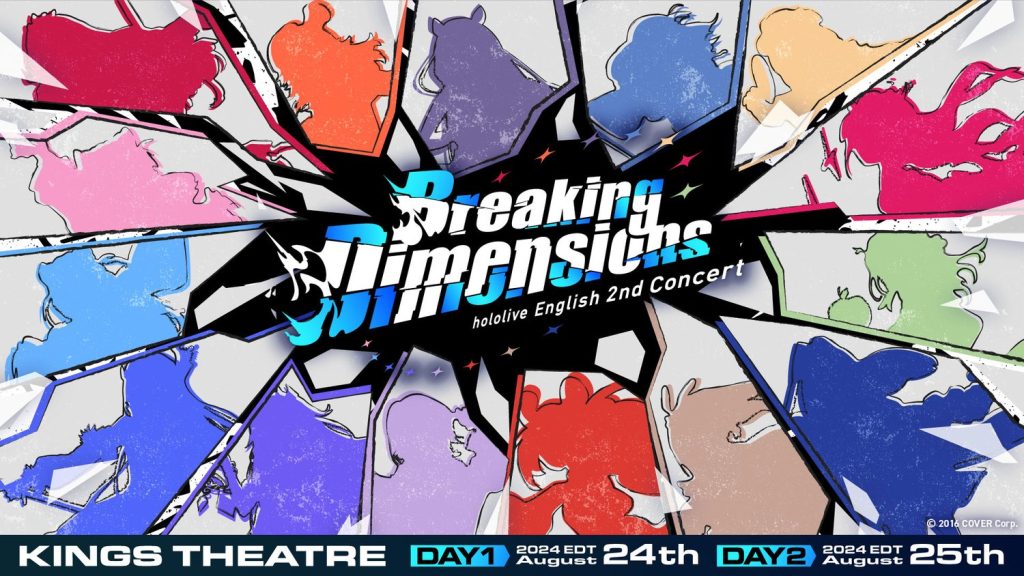
Now, getting back to the usual media, I continued on with Oshi no Ko S2, up to the end of the Tokyo Blade Play arc, where the episode painfully ends off on a cliff hanger. From where I’d last left off on the previous post, the show managed to wrap up the conflict between Abiko Sensei’s demands and Goa’s position as a script writer rather gracefully and empathetically. Oshi no Ko gave Abiko and Goa their own believable motives and feelings behind their conflicting views, and establishing a mutual understanding of each other was likely the best way that things could have been resolved. It’s an approach that’s often seen in media, but Aka handled it with a mature understanding of how there often aren’t any “bad guys” in these types of situations, and that simply doing what we think is right can put us at odds with others. It’s comforting to know that Aka believes in the ability for people to understand each other, even though people have the natural tendency to only look at things from one’s own limited perspective.
As the story moved into the actual Tokyo Blade play itself, I was a bit skeptical on how it’d actually be pulled off. Depicting acting and stage play is its own beast I’d imagine, with it requiring a level of understanding of the craft as well as an awareness that things can often come off as cheesy or inauthentic. I thought the show managed to stick its landing fairly well, with it leaning into its characters to carry the emotional momentum of the play.
The end of the latest episode saw the direction of the story shift back to Aqua’s original goal, with a very fitting cliffhanger leaving me wanting to peek at the manga to see what happens next. I’m actually curious on how Aka plans to approach this part of the story, as I get the impression that the story is more leaning towards a plot focused or “thriller” approach to this topic, rather than something I’d write, which would be something more of a “hope in humanity” sort of approach. There’s a lot of paths that Aka could take here, and all I can really say is that I’m buckling up for Aka’s wild ride.
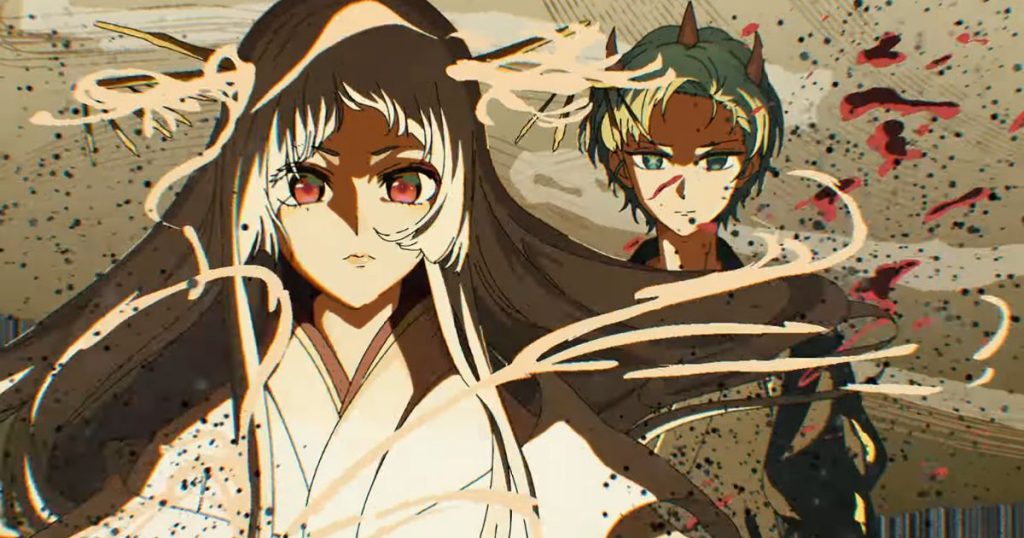
Continuing on the Ghibli filmography, I watched The Boy and the Heron, which isn’t part of the Ghibli film festival catalog, but I decided to watch anyway as part of a movie club/discussion. This film is Ghibli’s latest work, releasing at the end of the previous year, and is presumably the latest of Miyazaki’s “final” films. While I’m uncertain whether Miyazaki intends to retire for real this time, this film does feel like both a culmination and reflection of what he’s come to accomplish and embody. The love of craftsmanship, preservation of the environment and world, fantasy as a vehicle for personal metaphor, wonder of human progress and innovation – basically all the elements that are characteristic of a Miyazaki work are at play in this film.
I spoke a bit about Ghibli in my June 2024 post, that as more time has passed in my life, I’ve come to more understand and resonate with the many of the studio’s sensibilities and media priorities. This doesn’t just go for Ghibli, but also for any media created with a more “mature “understanding of the world. Miyazaki is no exception, and while I don’t share all the same views and inclinations as he does, I’ve come to more understand and appreciate how he views the world. If you’d asked me back in high school, I probably would’ve said something along the lines of “he’s a great creator but too stubborn in his ways, to the detriment of others and his work”. While he likely is very stubborn, and might’ve squashed some individual expression more than a few times in his pursuit of his visions, I can also tell that there’s also a beauty in that stubbornness, and that Miyazaki has his own unique vision of how he views the world that he wishes to instill. He’s lived and experienced a lot more than me, and being able to see how he individually expresses himself through his works is one of the beauties of storytelling and media.
The Boy and the Heron stands as a reflection of that, with much of the story’s structure, framing, thematic foundations all notably echoing Miyazaki’s previous works, as well as himself in the moment. Miyazaki knows that he’s entered his final chapters as a creator, and The Boy and the Heron almost stands as a testament to that – the world that the master of the tower has built, the desire and inability to find a successor, an acceptance of whatever the future brings… The film is a metaphor for that, though I did think at times that the film tended to get too deep into its own metaphor, leaving things more difficult for me to personally relate to. I’ve always been one to more appreciate a more grounded approach to storytelling, and when works tend to get too far into its metaphors is when I start to find it harder to resonate with. I don’t expect every aspect of the world to be explained or for every character to always act in accordance to how I think they would, but it’s a balance, and I find it much easier to personally care for characters if they’re believable in the ways that I think matter.
But, despite that, I thought The Boy and the Heron was still an excellent film, and beautiful reflection on what Miyazaki’s built. I’ve been making the joke that it could be his last “final film”, but if he’s healthy enough and wants to keep making more stories, then I’d sure hope he continues to. He’s one of the greatest storytellers of our time and missing out on even one more work from him would be a huge loss.
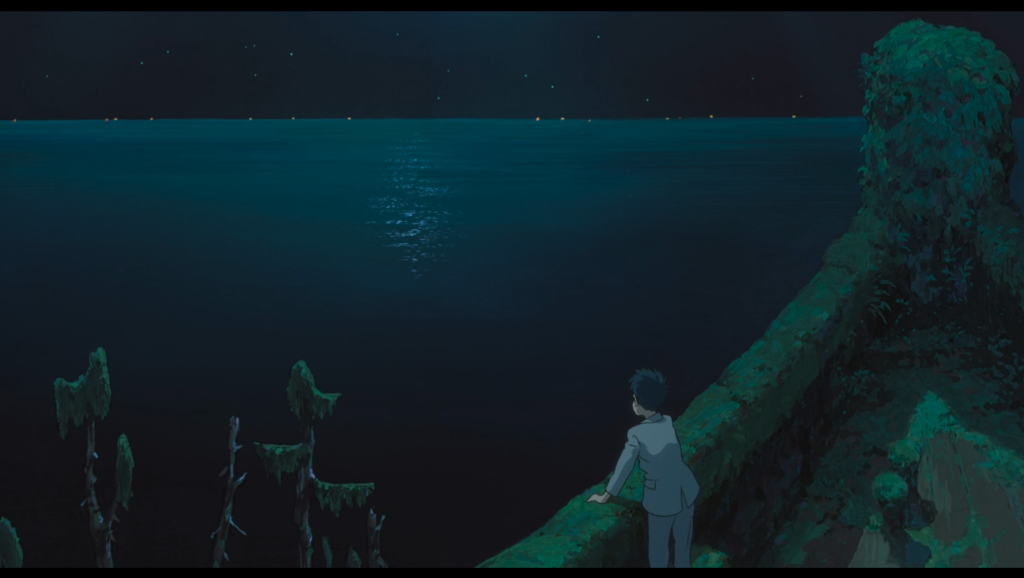
The next movie in the actual film festival catalog, and something I fittingly watched after watching Boy and the Heron, was Whisper of the Heart, a 1995 Ghibli film directed by would be successor Yoshifumi Kondo before his tragic death. I say fitting because while this film was very much a “Ghlibli” film is many ways, it also brings a unique take to the studio’s roster of films, in ways that I very much wished to see after watching The Boy and the Heron.
Whisper of the Heart has much of the typical Ghibli characteristics such as a love for craftsmanship and the arts, moments of wonder and discovery, beautiful character animation focused on the everyday, etc. But it utilizes all those elements to tell a story that’s much more grounded and personally relatable than any other Ghibli film I’ve seen. It might be the only Ghibli film I’ve seen that takes place in the “modern” age while not having a setting that’s detached or way out there (Marnie took place in the present, but it also takes place in the country/seaside, so not what you’d typically see). It takes place in that era’s modern Tokyo, and features many of the troubles and tribulations that might come out of that setting. While there were a few moments of “fantasy”, they were limited to dream or imagination sequences and most of the film depicted life as it is, preferring to find wonder in the present reality.
If you’ve read any amount of these posts, then it should be obvious that this is a very much “me” film. The characters were written with care and empathy, their personal journeys of adolescence and dream seeking felt real and relatable, there’s a powerful but mature world-weary edge to all its depictions, and there were many powerful, emotional moments scattered throughout the film. The scene where Shizuku starts singing Country Roads to the violin, eventually shifting to a full on musical performance might have been one of my most recent favorite scenes in media that I’ve seen.
This might’ve been the most “small scale” film from Ghibli that I’ve seen, but also the most “true to heart”, which likely leaves it as my favorite Ghibli film to date. I’m saddened to know that this was the first and last film directed by Yoshifumi Kondo, but I’m grateful that we were able to get this one film, and I can have some comfort in knowing that this film has likely influenced a number of creators throughout the years.
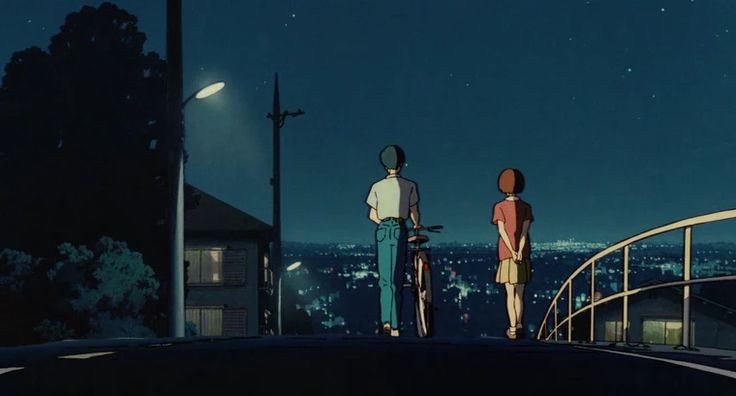
I once again returned to Steven Universe, finishing all of the original seasons as well as the movie, only leaving Steven Universe Future left to watch. Prior to finishing, I’d seen some impressions from people online that they’d thought that Steven Universe didn’t have the runtime to wrap things up in time, and while I can see what they mean, I did think that the show stuck the landing fairly well given the amount of runtime that it had to resolve all of its narrative and thematic threads. The big reveal in the final season was likely the only way that it could have pulled this off, and served to give the momentum the show needed to propel Steven toward his final confrontation with the Diamonds.
Steven himself embodies the story’s belief in both oneself and in others, and I was glad to see that the show never gave this up even when faced with the greatest foes of the story. Blue and Yellow Diamond (And I guess White Diamond too sort of?) were given their own bit of humanity, and the culmination of Steven’s journey ended with what was been the best way possible – with learning to love himself. Even just the smaller moments like with Lars and Steven stuck on the shop had its own moments of emotional vulnerability and clarity – a reflection of the show’s understanding and kindness.
I would’ve wanted to see some more character moments after everything was resolved, but I guess that’s what the movie and Future are for. I’ve already said a lot of praises in previous posts and I think I still have more thoughts on the show, but I want to save it for after I finish Future. I already have a decent impression on the tone of Future and what it stands to contribute to the Steven Universe… universe, so I think it’s most appropriate to wait until then. As far as the main story goes, the show beautifully managed to tie together all of the ongoing threads of even many of the side characters’ stories like Lars and Sadie, while never failing to embody the spirit of Steven and who he is. There’s much of the world that’s difficult and complicated, but even just simply having a kind, accepting heart like Steven’s can come to have the power to change and grow into something that we can come to love.
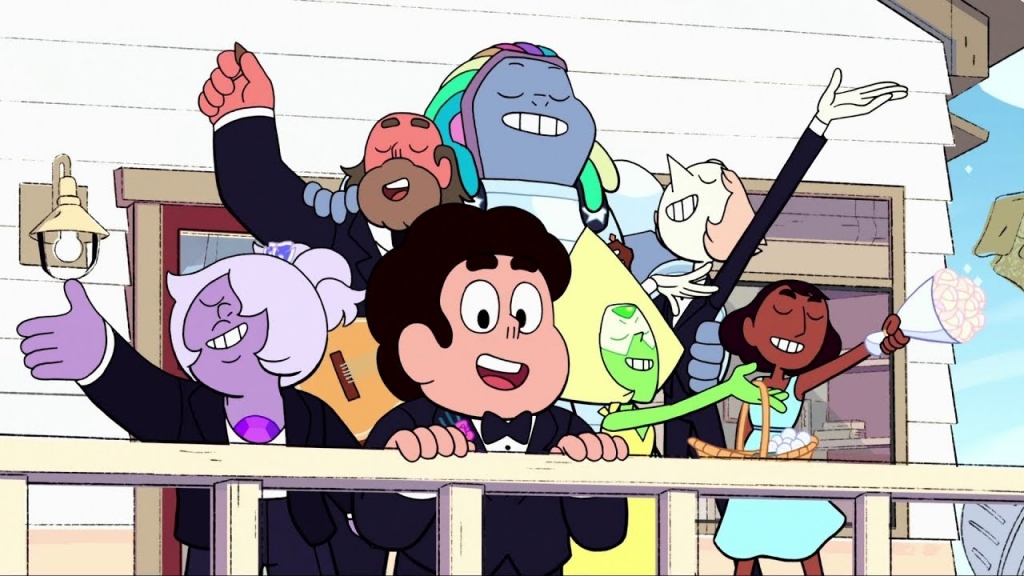
Following up right after the finale of the main Steven Universe story, we have Steven Universe: The Movie, which takes place some years after the events of the story’s finale. I wasn’t actually sure what kind of new development that they’d cook up for the plot of this movie, as a movie sequel would almost feel like a victory lap after the “happily ever after” that came prior. In a way, the movie is a victory lap, serving as a resounding celebration of the character’s journeys and accomplishments. That in and of itself isn’t a bad thing, if anything I’d love to see more of that given how much I like these characters, but that alone likely wouldn’t be enough for a fully fleshed-out movie.
Thankfully, The Steven Universe movie managed to carve out its own unique place in the Steven Universe story by expanding on, but not retreading, the continued understanding, complications, and acceptance of the life of Rose Quartz. While the show might’ve revealed much of Rose’s hidden motivations and given the characters some time to process things, that never truly means that everything’s all good and dandy and they’re ready to take on the future. Very much like life, coping with the difficulties of one’s own emotional burdens and memories comes with a lifelong journey of acceptance – a process that we often have to recommit ourselves to again and again. It gets better, but some wounds might never fully heal – as is the case with Steven, Pearl, and the rest of the people that were affected one way or another by Rose. An acceptance of what she did isn’t followed by a subsequent, complete relief of everything that’s happened and while the negative feelings might get better over time, but they might never fully go away.
But that’s okay! There’s comfort that can be found in the shared experiences of others that have been affected in the same ways, and in this, Steven Universe: The Movie finds its heart – one that tells its characters that it understands that terrible things happen, that it’s okay to hurt, and ultimately that while there might not be any easy answers, there’s a warmth that can be found in the understanding of others. Spinel, the new character and antagonist of this movie, is one who’d been betrayed and deeply hurt by Rose.
I know I’ve already talked a lot about how kind and understanding of a show Steven Universe is, but that truly is the essence of the show, and this movie. Spinel does terrible things, but the movie also understands that there were terrible things done to her, things that were never her fault, and understands the what can be born out of that pain. While the movie never condones Spinel’s acts of revenge, it chooses to understand why she did them, and believes in her as someone who has the capacity to accept things and to do good. It’s a hope and belief in people that I think is utterly human, empathetic, and beautiful.
So yeah, this movie was amazing in all the ways of that the show was, and it’s a work that gives me hope in my own capacity to try and embody that belief and kindness. Now for the coming month, onto the future, or Steven Universe Future!
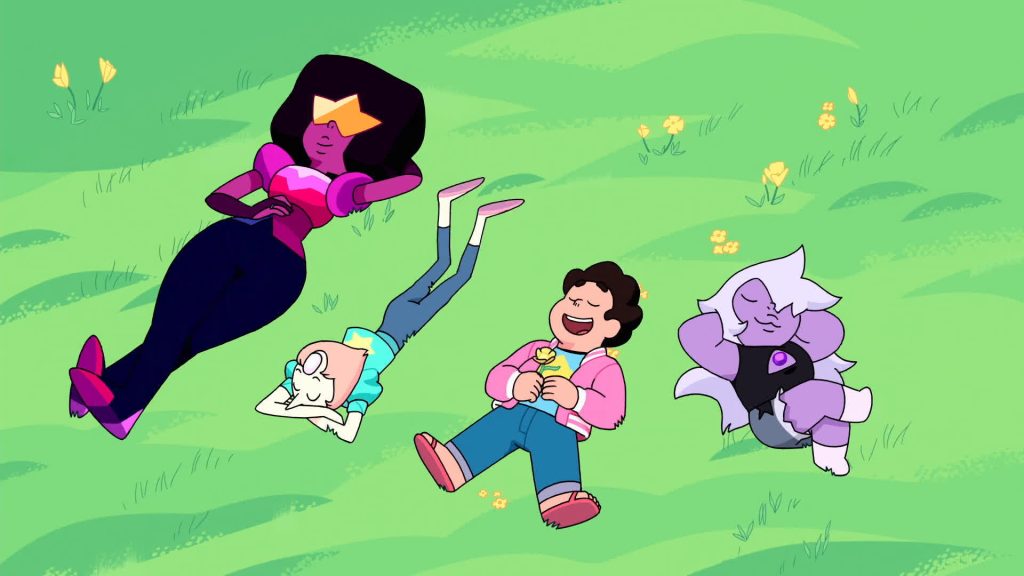
In the continuing aftermath of Manchester by the Sea’s impact on my soul, I looked towards Kenneth Lonergan’s filmography in search for other great stories, which brought me to You Can Count on Me, a 2000 film by Lonergan as well as his directorial debut.
Having watched this film and Manchester, I’m starting to get a better idea of Lonergan’s sensibilities and approach to writing. It’s an approach that truly understands the ways in which people can feel weak, vulnerable, and ugly – how we can hurt others, and ourselves, just by existing. It’s built from an understanding of how callous the world can be, but also about the ways that we can find those flickers of light that give us warmth. The film’s characters stumble throughout the story, often hurting others both unintentionally and by and doing genuinely awful things.. They’re flawed in ways that are believable and human, and reflective of how we often times struggle to navigate through the world.
The film never antagonizes or casts a judgmental light on these characters, but rather seeks to portray its raw truths with beauty and compassion. Lonergan quietly portrays life as it is, with all that entails – such as those moments of foolishness that nobody would condone, but somehow feels weirdly comforting, or those difficult moments where we want to let our pain known, or the moments we lose control of ourselves in anger.
You Can Count on Me was just a really great film that left me caring for these characters, despite the ugliness as people they might’ve shown. Watching this and Eternal Sunshine, it really seems like Ruffalo’s much more “in his element” in these sort of films or at least in the 2000’s, which I guess might not be fair considering my only modern exposure to him is his performance in… the Avengers. But hey, while there are probably other avenues for actors and actresses to show off their talents in compared to Marvel films, we got to have “I’m always angry” as an iconic line from that.
It’s apparent that Lonergan has a keen eye for portraying life through his films, but from the looks of it, there are often gaps in which we get films from him. It’s unfortunate, but I think it’s understandable and I’m filled with gratitude with what I’ve been able to watch from him so far. Whenever the next film of his comes out, I’ll be there to watch it.
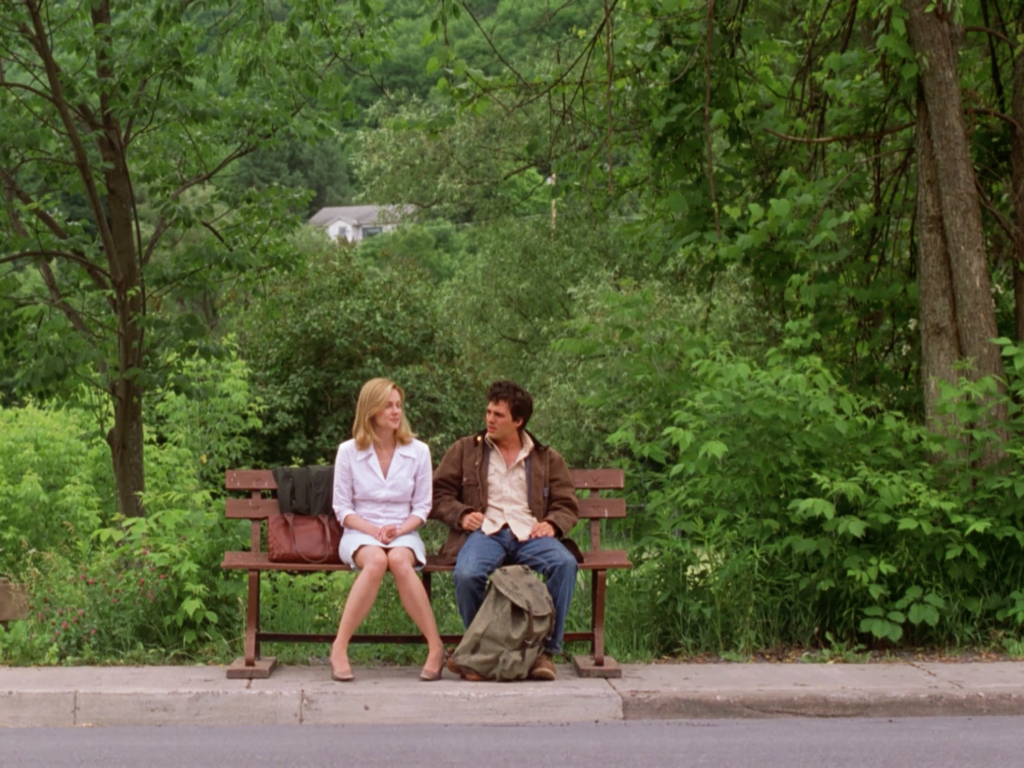
The next step in my film journey took me to the beautifully understated and intimately real 2023 film, Past Lives. Many of this film’s thematic threads are ones that I’ve thought a lot about throughout my life, and ones that coincidentally I also happen to have wrote about in the current work I’m writing right now. Threads about how we navigate our lives, where we end up, how it can take us to places that naturally cause ebbs and flows among our relationships and experiences, and how our deeply complicated emotions as a result of all that can leave us unable to speak any words, merely looking across the distance, into the eyes of another who might feel the same. Naturally, that’s resulted in me really, really resonating with this film and what it has to portray about the human experience.
It helps that this film is utterly remarkable in its execution, from its direction, to its script, to the acting, and its stellar technical production. Everything is meticulously and delicately crafted, building layer upon layer of emotional depth while always leaving room for the uncertainty that constitutes so much of our human experiences. Characters very often tell an entire story with just their gestures, expressions, and gazes, and even the everyday scenes where a character might simply be getting up from bed or pouring a cup of coffee is portrayed with a grace that almost seems as if it was an actual scene taken from someone’s life. I was also continuously impressed by the script and how natural and real each and every conversation felt. Maybe what was most transcendent though was the character writing, with both Nora and Hae Sung being beautifully written. Merely talking about this film’s execution doesn’t really do it justice, as the acting and Song’s screenplay and direction speak for itself, letting the film’s characters come to life in ways that can only be portrayed through their craft.
Past Lives chooses not to tell a romance story that’s characterized by wish fulfillment or “fairy tale” aspects, but rather tells a story about… living, with all the compromises we might make in choosing to be ourselves, how we come to affect others and in turn be affected by them, all the doubts and what ifs we have thinking about how we ended up where we are, and so much more. Past Lives just simply feels real in this way. Our choices in life won’t always take us to where we might hope or imagine, and simply doing what we think is right can end up separating us from people that we might otherwise spend the rest of our lives with. And if the situation were just slightly altered or if we’d have met at just a slightly different time, then maybe things would look completely different. It’s difficult to avoid thinking about what could have been, and when faced with the gaze of that person that could’ve been that future, we can only really return that same uncertain gaze.
Past Lives is likely the best film I’ve seen this year alongside Manchester by the Sea. It’s one that really opens my eyes to the power of film and just how much can be expressed through the medium. It’s personally resonant not just from the themes that Song chose to portray, but also from the personally relevant depictions of Korean and Korean American culture, and also simply by being a film that so sincerely depicts an intimate corner of the human experience. Apparently this is Celine Song’s directorial debut and if this film is any indicator for what’s to come in the future, then I’m sure to keep an eye out.
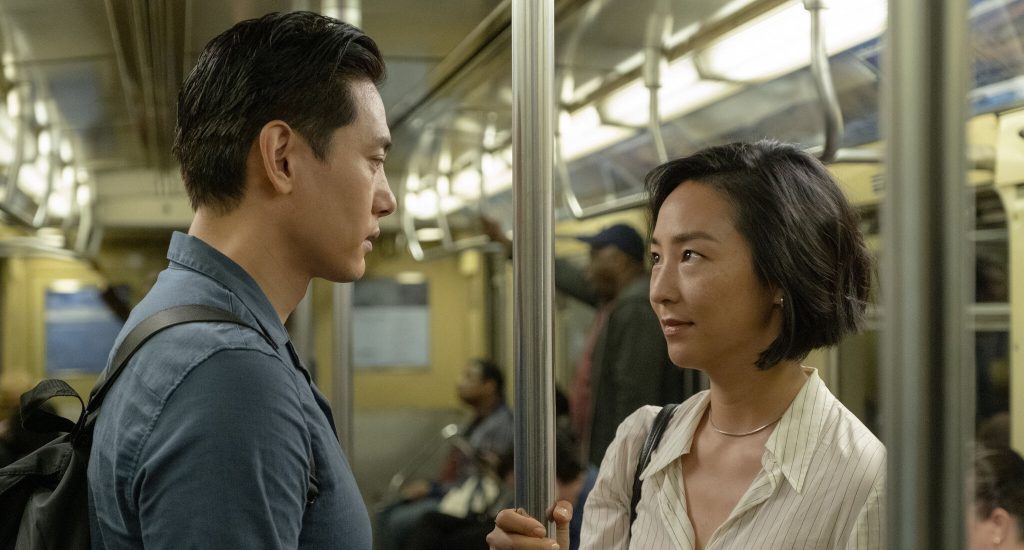
And finally, we have the continuation of my Kdrama journey, taking me through episode 8 of My Liberation Notes. As the show expands more on the two leads of Mi-jeong and Gu, I’m actually getting increasingly unsure of the direction that the show intends to take their respective journeys. On one hand, I’m glad that the show is continuing to humanize them in ways that I thought were more obscure earlier on, but on the other hand, I’m not exactly sure where everything intends to go. Mi-jeong and Gu were the biggest “unknowns” and thus, weakest parts of the show early on, but they’re continuing to get more moments that breathe some life into them. But there are a lot of ways that the show can go with them two, and while that’s not necessarily a bad thing, there’s definitely room for the story to go either way.
I did say “leads” when referring to Mi-jeong and Gu, but the show continues to split much of the screen time between the other characters, with Chang-hee and Gi-jeong getting much of that split. Chang-hee is easily the one with the strongest character writing, with much of his scenes populated by relatable reactions and powerful moments of vulnerability. Every scene that he’s in is made much better because of his character writing and his individual journey is the one that I’m most invested in. Gi-jeong is much less personally relatable for me, but is still very much believable and vulnerable as a character in ways that I think are characteristic of real life. I can somewhat understand Gi-jeong’s frustrations at relationships and her resulting resignation to just accepting whatever comes her way, but it’s not something I can personally bring myself to do, because I hold the commitment to a relationship in too high of a regard. I’m the type to very much prefer being alone to being in a relationship that I don’t feel is one where I can truly and utterly be myself and be accepted and be happy in. So yeah…
But much of the show’s strengths are still present, and my uncertainties are just that, uncertainties that have yet to be founded. So, I’ll continue to watch and see where everything goes.
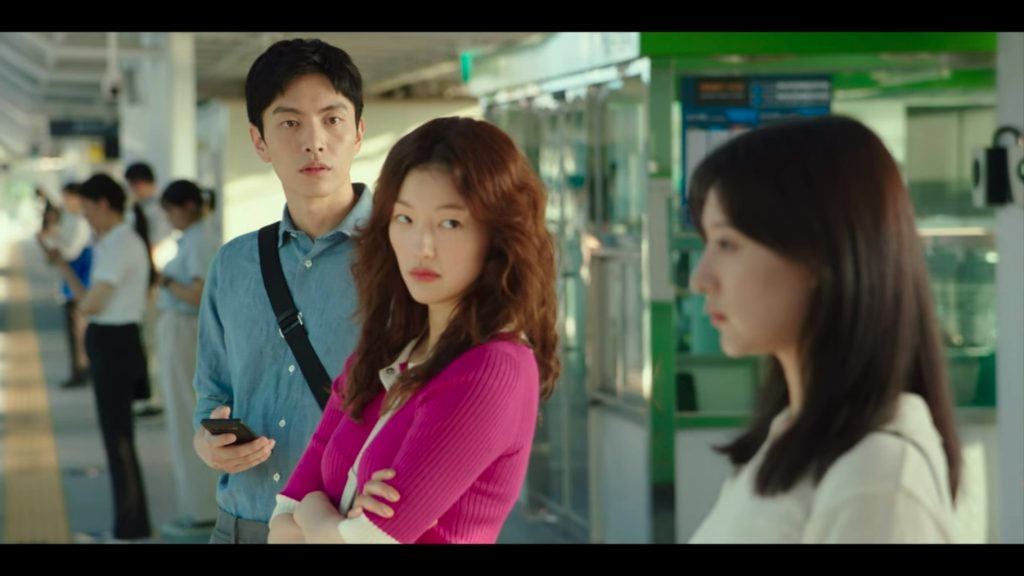
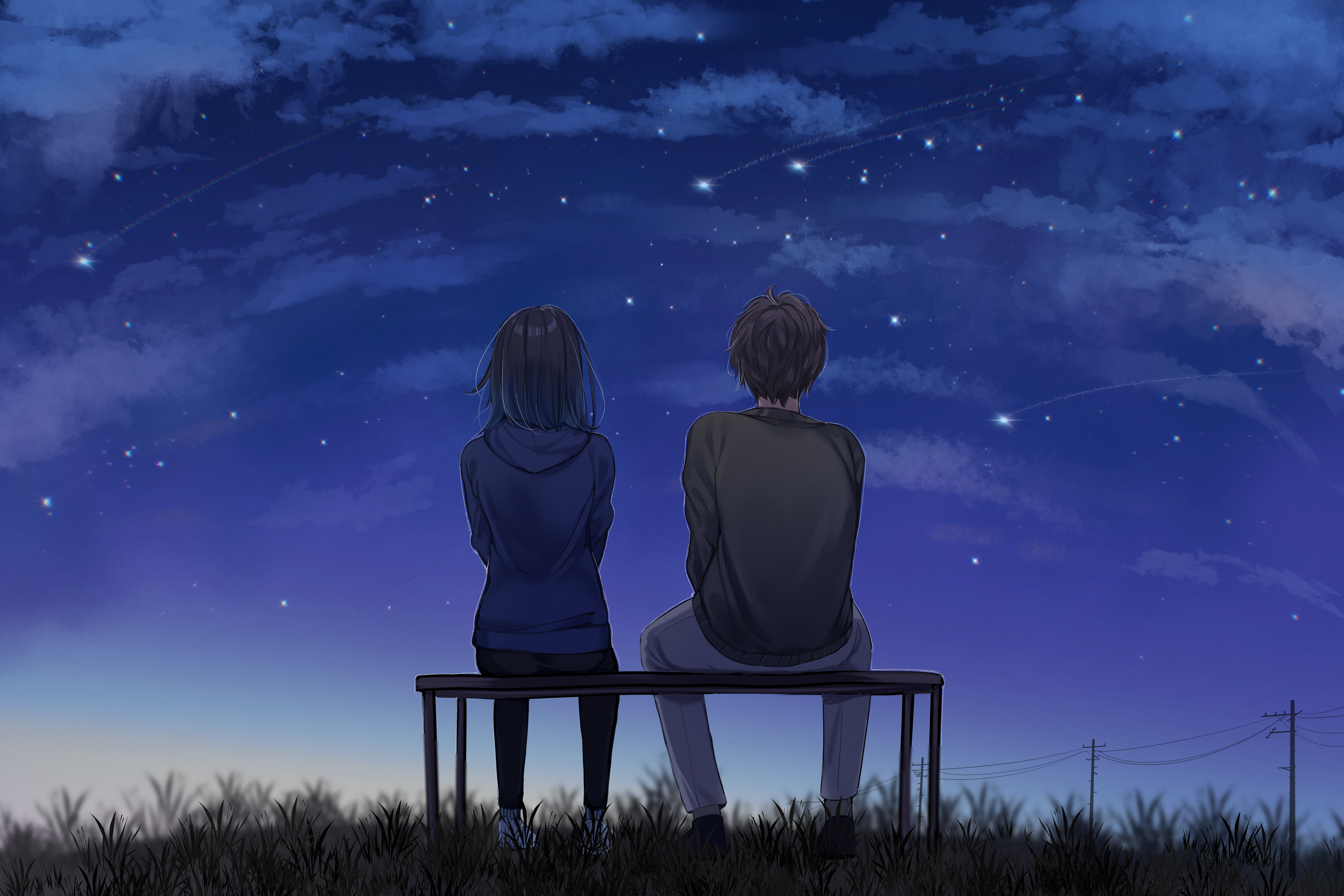
Leave a Reply